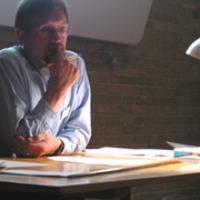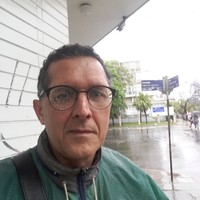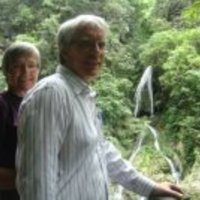Doctor en Ciencias Sociales por la Facultad de Humanidades y Ciencias de la Educación (UNLP). Becario posdoctoral CONICET en el Instituto de Investigaciones en Humanidades y Ciencias Sociales (IdIHCS/UNLP-CONICET). Integra el Grupo de Estudios Críticos e Interdisciplinarios sobre Problemática Energética (GECIPE).
Address: La Plata, Buenos Aires F.D., Argentina
Address: La Plata, Buenos Aires F.D., Argentina
less
Related Authors
Bob Jessop
Lancaster University
Armando Marques-Guedes
UNL - New University of Lisbon
Rafael Resendiz
Universidad Nacional Autónoma de México
Sebastián Mauro
Universidad de Buenos Aires
Salvador Martí-i-Puig
Universitat de Girona
Miguel Aparicio
Universidade Federal do Oeste do Pará
Lorena Córdoba
National Scientific and Technical Research Council
Tony Waters
Leuphana University
Nahuel Roldán
National Scientific and Technical Research Council











Uploads
Papers by Juan Acacio
Abstract
The text focuses on different aspects of the conflict surrounding the production of unconventional hydrocarbons in Vaca Muerta, Argen- tina. One of the central disputes has as protagonists the Mapuche community, the provincial and national state, and companies. The work analyzes the resistance developed by the Mapuche community of Campo Maripe, which claims ownership of its ancestral territory located in the heart of the exploitation of unconventional resources, in the Province of Neuquen, distinguishing how the State and busi- nessmen have resorted to judicial and repressive instruments to evict the community from these lands. It will start from the study of the final stretch of the usurpation trial that occurred in the provincial city in 2019, where the accused were the six members of community of Campo Maripe. The trial thus acts as a prism that allows us to appre- ciate divergent valuations, perceptions and actions that are mobilized between the actors involved in the confrontation with reference to the territory, nature, and the gaze on the other. From a sociologic and qualitative analysis perspective, it contributes to a reflection on the modality adopted by social conflicts around fracking in Vaca Muerta, the reasons for the resistance, and on some of the strategies that cap- ital adopts to continue exploiting the assets of nature at the current stage of energy production.
Abstract
The text focuses on different aspects of the conflict surrounding the production of unconventional hydrocarbons in Vaca Muerta, Argen- tina. One of the central disputes has as protagonists the Mapuche community, the provincial and national state, and companies. The work analyzes the resistance developed by the Mapuche community of Campo Maripe, which claims ownership of its ancestral territory located in the heart of the exploitation of unconventional resources, in the Province of Neuquen, distinguishing how the State and busi- nessmen have resorted to judicial and repressive instruments to evict the community from these lands. It will start from the study of the final stretch of the usurpation trial that occurred in the provincial city in 2019, where the accused were the six members of community of Campo Maripe. The trial thus acts as a prism that allows us to appre- ciate divergent valuations, perceptions and actions that are mobilized between the actors involved in the confrontation with reference to the territory, nature, and the gaze on the other. From a sociologic and qualitative analysis perspective, it contributes to a reflection on the modality adopted by social conflicts around fracking in Vaca Muerta, the reasons for the resistance, and on some of the strategies that cap- ital adopts to continue exploiting the assets of nature at the current stage of energy production.